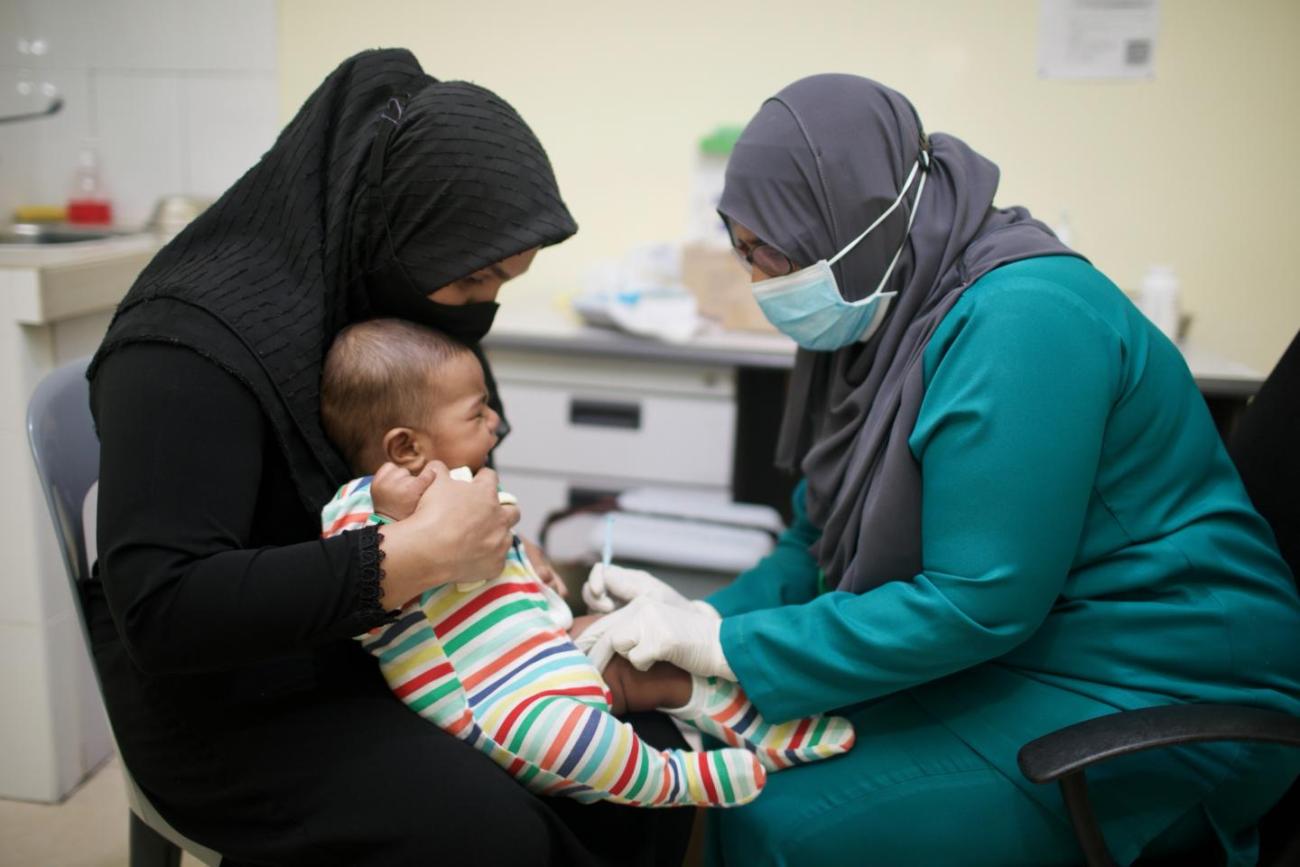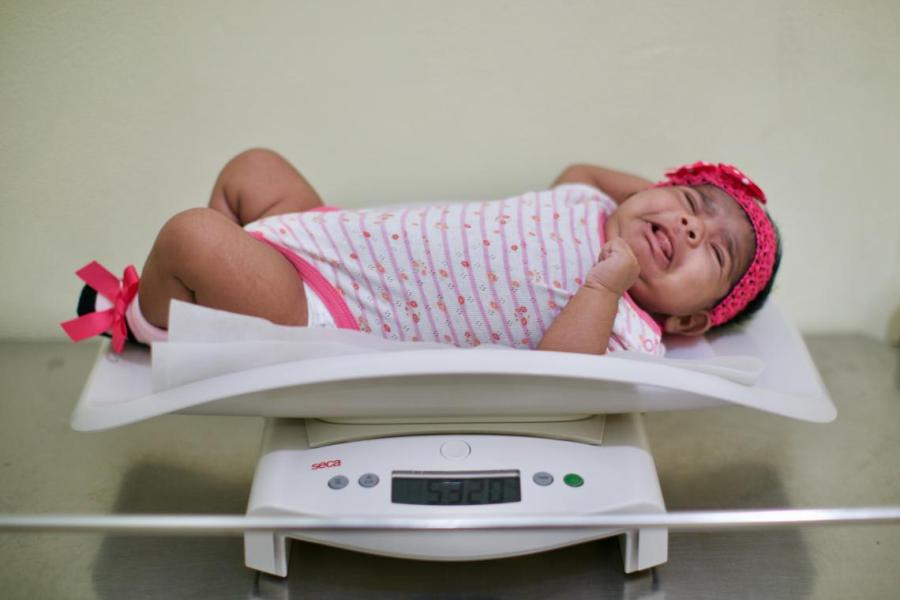Ensuring access to life-saving health services for children in Male’

UNICEF’s continued support to the health sector to ensure the continuation of essential services for children during COVID-19.
As frontline healthcare providers rush to deal with an ever-increasing workload due to the COVID-19 pandemic, health workers are applying alternative modalities to minimize the service disruptions to ensure children receive life-saving immunization and other health and nutrition services which are vital for the first 1000 days of a child’s life.
In the Maldives, as community transmission of COVID-19 cases in April forced a lockdown in the capital, Malé, health services were also disrupted for three weeks as authorities worked out a system to continue the essential service throughout the lockdown period. This affected routine immunizations and nutritional support for children, pregnant women and new mothers living in greater Male’, where an estimated 40% of people reside.
UNICEF has been working closely with Health Protection Agency (HPA) and Ministry of Health (MoH) and local partners to help ensure undisrupted continuation of routine vaccinations to provide vital protection from life-threatening preventable diseases, such as measles.
This includes supporting the Dhamanaveshi urban health center in the capital Male’ with additional staffing to help catch-up on routine vaccinations and provide child nutrition services. One of the key challenges at Dhamanaveshi, and overall health system is the absence of a health information management system (HIMS). Providing a dedicated public health officer has helped the center to better manage growth monitoring data of children, as well as reach-out to parents and provide virtual informative counselling to parents.

Child nutrition is an important issue in Maldives as malnutrition is a challenge that affects children's health and wellbeing
Aminath Adheela, UNICEF supported public health officer
Malnutrition among children continues to be an area of public health concern, with nearly 15 percent of children stunted (Maldives Demographic Health Survey 2016/17). According to a 2018 Rapid assessment on infant and young child feeding revealed the improper feeding practices as a prevailing issue among parents of young children. Hence, a key factor that contributes to undernutrition as well as overnutrition of children under five in the Maldives is the limited skills of parents and caregivers on responsive feeding. Provision of IYCF informative education and counselling is critical to build the knowledge and skills of parents to provide appropriate and nutritious food to children.
Aminath Adheela, the UNICEF supported new public health officer placed in Dhamanaveshi, noted that COVID-19 has disrupted regular services at the center, which now operates with safety measures to limit interactions. Her work includes using child growth monitoring data to identify children whose growth is faltering in order to provide nutrition counselling such as breastfeeding counselling and infant and young child feeding (IYCF) counselling to parents over phone.
"Child nutrition is an important issue in Maldives as malnutrition is a challenge that affects children's health and wellbeing. We can address this issue by providing key messages on nutrition, breast-feeding and infant and young child feeding practices. If we can successfully tackle this issue, productivity of our future generation will improve significantly", Aminath Adheela.
The new virtual nutrition counselling is helping parents understand and manage the nutrition needs of children in the capital.
The service has really helped us. My baby suffers from coeliac disease, so it is a challenge. The information on how to manage his diet, what the options and gluten-free alternatives has made things easier for us
A 26-year-old mother
A 26-year-old mother, whose child has coeliac disease found that she was in a better position to help her son after a virtual one-on-one session provided by Damanavsehi UNICEF supported public health officer.
“The service has really helped us. My baby suffers from coeliac disease, so it is a challenge. The information on how to manage his diet, what the options and gluten-free alternatives has made things easier for us,” she said. Another parent revealed that they have been opting not to give babies eggs in the first year, due to fear of allergic reactions. As eggs are rich in protein and other nutrition these are affordable simple changes that can be brought to the diet as first food to infants.
Advocacy, technical support and awareness has led to an increased uptake of immunization, with nearly 10,000 routine vaccines provided by mid October 2020.


